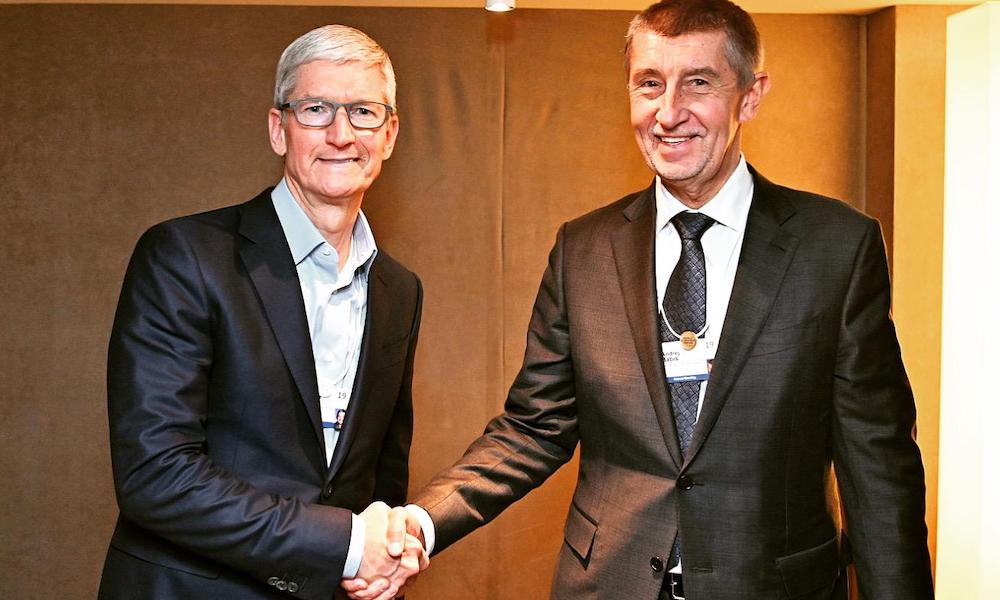Apple CEO to Be Deposed on June 27 Amid Qualcomm Legal Battle
 Credit: Andrej Babiš / Facebook
Credit: Andrej Babiš / Facebook
Toggle Dark Mode
The epic and seemingly ever-evolving Apple vs. Qualcomm legal saga is as complex as it is far-reaching, and both companies have weathered their fair share of accusations, lawsuits, and countersuits galore.
Now, according to a court document uploaded to Scribd this week, Apple CEO Tim Cook will allegedly be heading to court for his much anticipated deposition on June 27, 2018, constituent with a damning Qualcomm countersuit against Apple which accuses it of lying to regulators in a bid to spark multiple international government investigations.
Initially, Cook was called to be deposed on or before May 11, 2018, according to the memo — however the iPhone- and modem-makers were unable to settle on a convenient date.
Apple’s contract manufacturing partners who are also named in the suit, which include Compal, Hon Hai Precision Co. (Foxconn), Pegatron, and Wistron, have since signed off on the motion.
It’s rare for Apple’s Chief Executive, himself, to be so closely involved in the company’s legal proceedings — a job most often left to the company’s general counsel, Bruce Sewell, and hired attorneys — however it’s not surprising when the stakes and potential costs are as high as they are in this tantamount legal dispute.
Brief Recap of Apple vs. Qualcomm
The debacle began back in January 2017, when Apple (backed by the U.S. Federal Trade Commission) filed an injunction against Qualcomm for allegedly engaging in monopolistic and anti-competitive practices — leveraging its cushy position atop the worldwide chip market to obtain unfair and unregulated control over it — and for withholding as much as $1 billion in payments owed to Cupertino for its decision to cooperate with antitrust investigations.
From there, the suit slowly but surely evolved in both scope and intensity, with Apple and Qualcomm respectively lodging claims and filing countersuits in various jurisdictions around the globe — ultimately prompting the intervention of several world governments including the United Kingdom, China, South Korea and Taiwan. Some of which have since gone on to levy multi-million dollar penalties against the San Diego, California-based chip-maker.
Among Apple’s core arguments was that its unfair of Qualcomm to charge royalties based on the price of a complete device — as opposed to what Qualcomm’s chips inherently contribute to their overall function, which in the case of a $700, $800, or even $1,149 iPhone can amount to significant sums of money.






